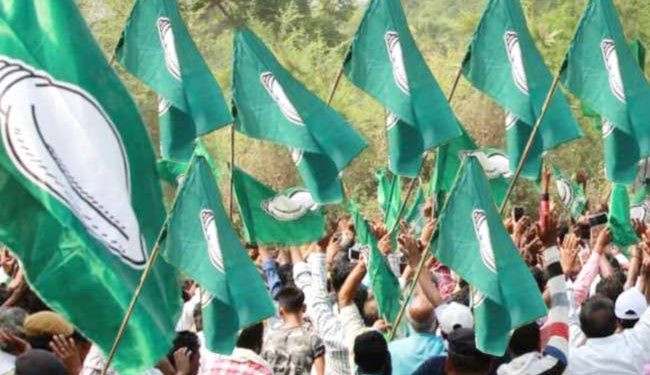Bhubaneswar: A large number of regional parties have raised their demand for a caste-based census in their respective states. The Biju Janata Dal (BJD) has also recently joined this chorus and demanded a caste-based census in Odisha. The party has also said that it wants the reservation ceiling in the state for Scheduled Caste (SC), Scheduled Tribe (ST) and Other Backward Classes (OBC) be increased above the 50%-mark as prescribed by the Supreme Court.
BJD supremo and Odisha Chief Minister Naveen Patnaik has taken the lead in this regard. Party MPs recently met Union Home Minister Amit Shah in Delhi to press for their demand for a caste-based census. Reliable sources claimed that the Home Minister was not only cold to the BJD delegation but flatly refused to back their demand.
The regional party also came out with the slogan ‘Palli to Delhi’ at a recent press conference to give their demand a ‘national’ look.
Political analysts however, see this change of stance by the BJD as an effort to woo the OBC communities in the state. The party is also trying to counter its political adversaries who are trying to influence the OBC groups. Caste-based politics in the past has not been used for political battles in Odisha. However, the upcoming panchayat polls and the likely threat from Opposition parties could have triggered this paradigm shift in the BJD’s approach.
Opposition BJP and Congress have criticised the ruling BJD over its pitch for the caste-based census.
“BJD has a dark past when it comes to taking care of the interests of the OBC communities. This is evident from the fact that the State Commission for Backward Classes was dissolved in 2006. It took more than 13 years and intervention of the Orissa High Court to reinstate the panel exemplifying the apathy of the state government,” Congress spokesperson Satyaprakash Nayak told Orissa POST.
He also pointed out that the Naveen Patnaik-led BJD has now understood the efforts of influential BJP leaders like Dharmendra Pradhan to woo the OBC. “Pradhan tried to polarise the OBC voters subtly by focusing on leaders of the ‘Paika’ community. He also demanded reservation for the OBC communities in Odisha. In these circumstances, the BJD realised that they will have to come forward with pro-OBC proposals to counter the BJP. So, it has launched this new narrative of caste-based census,” pointed out Nayak.
Former Union Minister Srikant Jena is also in favour of a caste-based census. He said that BJD joined the bandwagon for a caste-based census only after other parties had raised it. Jena termed the BJD’s policies as ‘anti-Dalit’ and ‘anti-OBC’.
“There is provision of exceeding 50 per cent caste-based reservation limit under exceptional circumstances in states. Odisha, as compared to other states, has a larger SC/ST population than the national average. Had the Odisha government placed its case in the Supreme Court in a proper manner, it could easily have increased the reservation limit,” Jena opined.
The BJP, on the other hand, claimed that the BJD government has raised the issue of caste-based census just to save its face after years of neglecting the OBC communities. “There are 210 OBC communities identified in Odisha. There is reservation of 11.25 per cent for the OBC communities in Odisha. However, this has never been implemented by the Odisha government. It is evident from the advertisements for government recruitments. Forget the OBC communities, even the SC/ST categories have been a deprived lot as far as employment is concerned,” said Surath Biswal, president of the Odisha BJP OBC committee. “The non-functional State Commission for Backward Classes has been a bane for the welfare of OBC communities in Odisha,” Biswal added.
About BJP’s stand on caste-based census, Biswal said, “The decision will be taken at national level after listening to all the parties.”
Data, however, proves that the Constitutional Right to Reservation had always been a matter of controversy in Odisha. The last ‘India Justice Report’ of 2020 amply proves this fact. It says that there is 27 per cent deficiency of SC officers in the state’s police department while it is 47 per cent for ST and 23 per cent for OBC categories.
In response to these allegations, a senior BJD leader on condition of anonymity said, “Odisha’s case is different as the state has a large SC/ST population as compared to other states. A caste-based census could help us in enumerating the status of different castes not only in Odisha but across India. The demand has been raised by different parties. We are also committed to see that the OBC communities are not deprived of their rights in Odisha.”






































